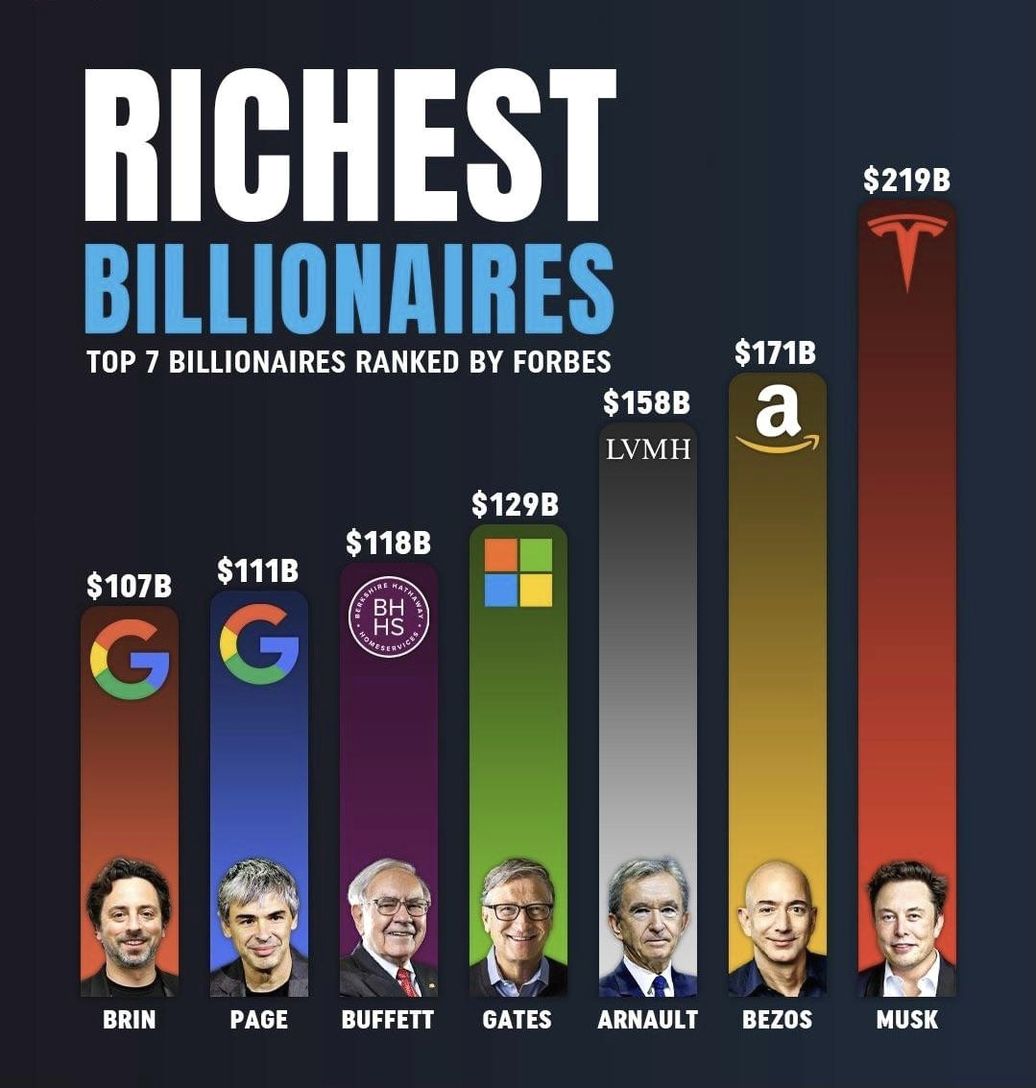When we think about folks with a lot of money, our minds often go to business leaders or tech innovators, you know? But there is another group of individuals who have built truly impressive financial piles, all by making people chuckle and think. These are the stand-up comedians, and their ability to command an audience often translates into some very big paychecks, too it's almost. It is a fascinating thing to consider how a person can turn jokes and stories into a significant fortune.
Just like we see with the world’s top money-makers, whose wealth is tracked daily by things like the Bloomberg Billionaires Index, the financial standing of entertainers can shift, as a matter of fact. My text shows how these rankings are updated, looking at stock market performance and the general state of the economy. For comedians, their financial well-being also depends on a mix of public appeal, tour success, and various projects.
So, we are going to explore what goes into making some of these stand-up artists the wealthiest in their field. It is a story not just about funny jokes, but about smart business choices, too. We will look at how their unique skills bring in the big bucks, and how their money stacks up in the broader picture of celebrity wealth.
Table of Contents
Comedy and Cash: How Stand-Up Stars Make Their Millions
The Path to Plenty: A Comedian's Financial Journey
Tracking the Laughs and the Loot: Understanding Comedian Wealth
From Stage to Screen and Beyond: Diversifying Income
The Ongoing Story of Comedic Riches
Comedy and Cash: How Stand-Up Stars Make Their Millions
The idea of making a fortune from telling jokes might seem like a dream to many, but for the richest stand up comedians, it is a very real achievement. These individuals have taken their knack for humor and transformed it into significant financial success. It is not just about being funny; it is also about building a brand, connecting with a wide audience, and making very shrewd business moves, you know. The journey from a small stage to a large fortune is often a long one, but for a select few, it has paid off handsomely.
Think about how global wealth is measured. My text talks about how entities like the Bloomberg Billionaires Index keep tabs on the world's most affluent individuals, updating their net worth daily based on market performance and economic conditions. Similarly, the financial standing of leading comedians is influenced by their ongoing work and the entertainment market. Their worth isn't static; it shifts with every sold-out show, every new streaming special, and every smart investment they make, as a matter of fact.
What makes a comedian truly wealthy is a combination of factors. It includes their ability to draw massive crowds to live shows, securing lucrative deals for exclusive content, and often branching out into other areas of entertainment. These diverse income streams are key to accumulating the kind of money that puts them on lists of top earners. We will explore how these elements come together to create comedic fortunes.
The Path to Plenty: A Comedian's Financial Journey
A comedian's path to becoming one of the richest stand-up comedians is rarely a straight line, you know. It usually starts with countless hours spent in small clubs, telling jokes to just a few people. They are honing their craft, figuring out what makes an audience laugh, and building their stage presence. This early period, while not bringing in much money, is absolutely vital for developing the skills that will later lead to significant earnings. It is a time of learning, of trying out new material, and finding their unique voice.
Eventually, some comedians start to gain a following. They might get spots on late-night TV shows or release independent comedy albums. This is where their name starts to get out there, and their earning potential begins to grow, too. It is a slow build, requiring a lot of persistence and a genuine connection with people. The more people who connect with their humor, the more tickets they can sell for their shows. This growing popularity allows them to play bigger venues and charge more for tickets, which really starts to make a difference in their income, actually.
The real turning point for many comes with major tours or streaming specials. These events can bring in millions of dollars, sometimes even hundreds of millions, depending on the comedian's popularity and the deal they strike. For instance, a very popular comedian might sell out arenas across the globe, and the ticket sales alone can be quite substantial. Then, there are the deals with big streaming services, which pay a lot of money for exclusive content. These are the big paydays that really boost a comedian's overall financial standing, as a matter of fact. These large-scale projects allow them to reach a global audience, multiplying their earning power significantly.
This journey from humble beginnings to significant wealth is a common thread among many successful entertainers. It shows that dedication to one's craft, combined with strategic career moves, can lead to remarkable financial outcomes. The ability to consistently deliver laughter, year after year, is what keeps audiences coming back and keeps the money flowing in, pretty much.
Tracking the Laughs and the Loot: Understanding Comedian Wealth
When we talk about the richest stand up comedians, it is important to remember how these financial figures are put together. My text talks about how groups like the Bloomberg Billionaires Index or Forbes compile their lists of the world’s wealthiest individuals. They look at things like investments, property, and business holdings. For comedians, it is a similar process, but with a focus on their unique income streams, you know.
For example, a comedian’s wealth might include earnings from their stand-up tours, which can be massive. It also accounts for money from comedy specials, whether they are on television or a streaming platform. Then, there are acting roles in movies or TV shows, which many successful comedians take on. Endorsement deals, where they promote products, also add to their total financial picture, as a matter of fact. These are all parts of their overall money pile, contributing to their estimated net worth.
Just like Elon Musk’s wealth is tracked based on his Tesla shares and other ventures, a comedian’s financial health is tied to the success of their creative output and business ventures. The Bloomberg Billionaires Index, as my text points out, updates daily based on market shifts. For comedians, their "market" is their audience and the entertainment industry. A hugely successful special or a sold-out global tour can significantly boost their financial standing, pretty much overnight. It is a direct reflection of their ongoing popularity and the value of their creative work.
It is worth noting that these figures are often estimates. My text mentions that Forbes' estimates are a snapshot as of a certain date, like September 1, 2024, for the Forbes 400. Similarly, the Bloomberg index is current as of July 1, 2025, for some of its data. This means a comedian’s wealth can change, sometimes quite a bit, based on new projects, investments, or even just the popularity of their older work. It is a constantly moving target, you know, reflecting the dynamic nature of the entertainment business and the financial world at large.
The methods used to calculate these fortunes are quite detailed. As my text says, "Details about the calculations are provided in the net worth analysis on each billionaire’s profile page." For comedians, this would involve a careful look at their tour grosses, streaming deal values, acting contracts, and any other business ventures they might have. It is a comprehensive assessment that tries to capture their full financial picture, as accurate as possible given the available public information.
From Stage to Screen and Beyond: Diversifying Income
The truly richest stand up comedians rarely rely on just stand-up alone for their fortunes, as a matter of fact. They tend to branch out, creating multiple ways to earn money. This diversification is a key strategy for building and maintaining significant wealth, very much like how successful business people spread their investments across different industries. It ensures a more stable and growing financial foundation, you know.
One common path is acting. Many comedians transition into film and television, taking on roles that can pay very well. Think about how many funny people you see in big Hollywood movies or hit TV shows, you know. These roles not only bring in a steady income but also keep them in the public eye, which helps their stand-up career, too. It is a cycle of success, sort of, where one area of entertainment feeds another, boosting their overall earning power and visibility.
Another major income stream comes from production deals. Successful comedians often start their own production companies, creating shows, movies, or even other comedy specials. They might produce content for streaming services or traditional networks, which can be incredibly profitable. This allows them to earn money not just from performing, but from the creative work of others, too it's almost. They become entertainment moguls, overseeing a range of projects and talent, which can generate substantial revenue.
Beyond traditional media, there are also things like merchandise sales, book deals, and even podcasts. A popular comedian can sell branded clothing, write best-selling books about their life or humor, or host a podcast that draws millions of listeners. Each of these ventures adds another layer to their financial security and helps them accumulate more money over time, naturally. These ventures capitalize on their established fan base and extend their brand beyond the stage.
It is a lot like how someone like Alice Walton, who is the richest woman and a Walmart heir, has her fortune tied to a massive retail empire, as my text points out. Comedians build their own kind of empire, centered around their unique brand of humor and entertainment. They understand that their comedic talent is a foundation, but building a diverse portfolio of projects is what truly makes them financially strong, you know. This strategic approach to their careers is what sets the wealthiest comedians apart, allowing them to amass considerable fortunes.
The ability to adapt and expand their creative output into various profitable avenues is a hallmark of these top earners. They are not just performers; they are savvy business people who understand how to leverage their unique talent into a multifaceted enterprise. This foresight and drive contribute significantly to their impressive net worths.
FAQ About Comedian Wealth
Here are some common questions people ask about the financial standing of funny people:
How do comedians earn so much money?
Comedians make their money from a variety of sources. This includes ticket sales from live stand-up tours, which can be incredibly lucrative for popular acts. They also earn big sums from comedy specials released on streaming platforms or television. Many successful comedians also have income from acting in movies and TV shows, endorsement deals, book sales, and even their own production companies. It is a mix of performing and smart business choices, actually.
Are comedian net worths publicly available?
Yes, net worth estimates for very famous comedians are often published by financial publications. These publications, much like the Bloomberg Billionaires Index or Forbes list mentioned in my text, gather publicly available information and make educated guesses about a person's total financial picture. They look at past earnings, investments, and known assets to come up with these figures, you know. While they are estimates, they give a pretty good idea of someone's overall wealth, similar to how other celebrity fortunes are tracked.
Does a comedian's wealth change often?
Absolutely, a comedian's wealth can change quite a



Detail Author:
- Name : Ms. Ollie Hudson
- Username : mdavis
- Email : stefan97@hotmail.com
- Birthdate : 2004-04-15
- Address : 14536 Moore Crescent Apt. 767 Lake Hillaryfurt, MA 47459
- Phone : 1-508-410-8846
- Company : Auer, Kuphal and White
- Job : Teacher Assistant
- Bio : Perferendis non odit occaecati expedita sunt id ratione. Quas distinctio voluptatem molestias illum voluptatum saepe culpa. Ex dolorem est id eos voluptate molestiae impedit.
Socials
linkedin:
- url : https://linkedin.com/in/toy_dev
- username : toy_dev
- bio : Provident occaecati voluptatem in id sed sed.
- followers : 3503
- following : 1564
facebook:
- url : https://facebook.com/toy_official
- username : toy_official
- bio : Consequatur sunt ipsum quos at sed.
- followers : 4406
- following : 928